- Home
- James A. Michener
Return to Paradise Page 18
Return to Paradise Read online
Page 18
“Those dreadful birds!” Lady Maud exploded.
“They certainly caught on in this land,” Sir Charles said.
“Aren’t they native?” McGurn asked.
“The Injians brought them along,” Lady Maud explained with much contempt, “when they came here to work the sugar.”
Sir Charles recalled other years. “When we first came here birds of all kinds clustered on that lawn.”
Lady Maud added, “The frightful mynahs have driven them all away.”
“Gresham’s law of ornithology,” the judge reflected. “Sparrows and mynahs drive out the better coin.”
“Like everything else, they should have been kept in Injia,” Lady Maud announced firmly.
Sir Charles turned crimson. “Really, my dear …” he began.
But his wife was not looking at him and added, “The birds are as vicious as the Injians who brought them. Between them, they’ve ruined Fiji.”
Sir Charles rose abruptly and in austere dignity stomped off the verandah. Lady Maud clapped a fat hand over her mouth and mumbled, “Goodness, I’ve done it again.” She struggled to rise from her rattan chair and McGurn helped her. As she stepped through the French doors, the American could hear the acidulous judge protest, “One day you’ll ruin me.”
And to McGurn’s surprise, Lady Maud poked her husband in the ribs and chuckled. “It’ll only be because I’m so stupid,” she said puckishly, whereupon they both laughed.
At this moment, the French doors farther down the verandah opened and Toni Jacquemart appeared. “Hullo,” she said cheerily. “Where’s the clan?”
“Inside,” McGurn reported, jerking his thumb at the door behind him. “I’m Louis Richardson McGurn.”
“What was the last name?” the pink-cheeked girl asked.
“McGurn.”
“Oh, Irish!”
He was about to disclose his English ancestry, when he saw a merry twinkle in the girl’s eye. He laughed and said, “As Irish as they come.”
Toni Jacquemart gripped his hand firmly. “What ya drinking?”
“Gin and tonic,” he replied.
“How frightfully British,” she laughed. “Any coke?”
McGurn winced and said, “I never drink it.”
“It’s my favorite,” Toni said.
“Where’d you meet up with it?”
“Here, during the war. Pops was stationed here and there were scads of Yanks about. You ever hear of the Duchess?”
“No.” The servant appeared and, to McGurn’s inner satisfaction, said there hadn’t been any coke on Fiji for two years. “A lemon squash?” the black man asked.
“If that’s all you have,” Toni sighed. “This Duchess,” she explained, “was an American DC-3. Stationed on the other side of the island.”
“At Nadi?” McGurn asked.
“Good old Nadi!” the girl chuckled. “Each Friday, the Yanks flew the Duchess over here to pick up a full cargo of pretty girls. Half-castes, Chinese, white girls! It was a lovely trip. The girls stayed overnight at the BOQ. Big dances. Fine food. There was necking galore.”
McGurn shivered. “Did you go?”
“Nope. Mums said I was too young. But once when the major himself asked Mums to be a chaperone I tagged along and had a wonderful time. The Americans got Mums tight and there was a hell of a go!”
The doors behind them opened and Lady Maud appeared. Her daughter leaped up and grabbed her by the shoulders. “I was telling Mr. McGurn—it’s Irish and very lilting—about the time the Americans got you spiffo.”
Lady Maud laughed. “What a delightful time we had! The girls of this island wept when that plane was taken away.”
“Mums volunteered to chaperone again,” Toni said, “but Pops put his foot down.”
“He takes a very dim view of white men mixing with colored girls,” Lady Maud said sternly. “I must say I do, too.”
“But you were the chaperone!” McGurn said.
“The men were Americans,” Lady Maud laughed. “They don’t have to run a thousand colonies.”
From within the hotel a musical chime began to sound and Toni jumped to her feet. “Dinner at last!” she cried.
Up and down the interior balcony walked an Indian with his chimes, beating them as if to summon the spirits of all the notable feasters who had lived in Fiji. The lovely tones died, and from each room appeared the Britons who, by their own devious routes, had this night assembled in the Cannibal Isles.
They were a stately crew. The men were often old and feeble, but they dressed for evening meal. Their women occasionally gave evidence of pinching pennies, but in the lacy shawls of a generation past they appeared in formal minuet as they progressed to the spotless linen and shining silver of the dining hall.
The Jacquemarts were led to a corner table where Sir Charles could keep aloof from diners who might otherwise embarrass him by commenting on the trial. Lady Maud, with no such inhibitions, held court and nodded to all the old hands. Toni sat beside her and cried a cheery “Hullo” to everyone. “We won the hockey game,” she announced.
“Seems to me,” Lady Maud observed icily, “that at your age you’d be giving up hockey.”
Toni jabbed a forefinger into her mother’s soft arm, “ ’Twould do you some good to have a go at it.”
“Antonia!” her father interrupted snappishly.
“It would, Pops! You don’t appreciate how boys study a girl’s mother. They want to see how the girl is going to look in twenty years.”
The judge snorted and withdrew into his shell. Lady Maud nodded graciously to friends who greeted her and said out of the corner of her mouth, “That Mr. McGurn seems a right decent sort, Antonia.”
Toni screwed her mouth up into a gangster snarl and whispered, “Let me pick me own men, see?” Lady Maud, against her will, broke into a smile and said, “You don’t seem to have done very well, so far.” But she was pleased to see that Toni, out of the corner of her eye, was looking at the American.
McGurn, seated across the dining room in quarters reserved for Americans and other vagrants, was at the same time studying Toni. She was, he thought, not a beautiful girl. But she had that glowing English complexion which makes any woman attractive, even if she was inclined to plumpness. “She’s not fat,” he mused. “Not like her mother.” Then he looked at Lady Maud sprawling over her chair, and he thought happily of the straight, frail women of his family, the Richardson women. They had been beautiful, his mother loveliest of all. She could have married any man in Boston, and she chose Timmy McGurn. Her son Louis could certainly have arranged her life for her better than that.
His regrets about his mother were interrupted by an Indian messenger, who tapped him respectfully on the shoulder.
“Meestair McGurrrrn? A man outside to see you.”
Louis put down the forkful of food he was about to stuff into his mouth, English style, and said, “Tell him he must wait.”
“He says very important,” the Indian persisted.
McGurn had learned never to become impatient—or rather, never to betray that he had become impatient—and he said gently, “You can see I’m eating. Tell him that.”
But the messenger said in a low whisper, “This man says it’s to do with your mission.”
McGurn masked his astonishment and said, “Perhaps I’ll see him now.” He rose unobtrusively, nodded when Lady Maud smiled, and followed the messenger.
At the curb outside the hotel, a thin and very black figure awaited him. “If you will be so generous as to pardon me,” the cadaverous figure apologized unctuously. “Only a matter of gravest importance could justify … Permit me, my card.”
The funereal face broke into a flashing smile and a tiny card was thrust into McGurn’s hand. By the misty light of a street lamp he read: “Mr. Ramcheck Devidas Billimoria. Christian. Dealer in Souvenirs of All Kinds. Cats’ Eyes. Tortoise Shell. Fine Indian Ivory.”
McGurn had sometimes seen this man about the streets of Suv
a. The Hindu-turned-Christian carried a small cardboard suitcase, heavily stamped to make it resemble alligator. He appeared to eke out a mean living so that he could wear a threadbare European suit and pointed shoes. His skin was midnight black but he had mastered the trick of looking directly into the eyes of Europeans, whereas most of his countrymen looked away.
“And what did you wish?” McGurn asked cautiously.
“It concerns … your mission.”
McGurn showed no surprise and asked, “Yes?”
Billimoria had not anticipated this, so he fumbled for a moment. “Your mission for the United States Government,” he said.
“I have no mission,” McGurn said coldly. “Anyway, I don’t deal with informers, Mister …” He looked with studied insolence at the preposterous card.
The Indian did not flinch. “Neither do I, normally. After all, there’s nothing much lower than an informer, is there, Mister …” Here Billimoria appeared to fumble for a name exactly as McGurn had done. “But your man Harvey …”
“Who?”
“Joe Harvey. At the airport.”
McGurn had met Harvey, but he had no knowledge of his affairs other than that he came from Kansas City and was an airport engineer working on Pacific Air Transport’s base at the new Suva field. “I see no reason why Harvey is any concern of mine.”
He started to leave, but the Indian pressed a long index finger into his chest. In a deathly whisper Billimoria asked, “We don’t want to see Harvey killed, do we? Not at this time?”
McGurn tried to appear very casual and asked, “Why should a young man like Harvey be killed?”
“Because he’s what you Americans call ‘running around with’ an Indian girl.” He paused, then whispered sinisterly, “Our Indian men don’t like it.”
McGurn smiled. “I understand, Mr. Billimoria. The American has stolen your girl. Why don’t you go home and forget about it?”
He turned his back upon the informer and took two steps toward the hotel, only to be caught by the arm and jerked about. “McGurn!” Billimiora threatened, insulting the white man by omitting the “mister,” “You’re a fool! If Harvey debauches an Indian girl, there will be grave trouble … when you want it least.” Almost mysteriously, the Indian slipped away into the shadows.
McGurn was disgusted. His food was cold, the Jacquemarts had left the dining room, and he was worried. It was quite probable that Harvey had struck up some kind of acquaintance with an Indian girl. There was a certain type of American man who could be counted on to shack up with absolutely any kind of woman. You couldn’t designate the type of female who would be too low for some American to crawl into bed with.
McGurn ate a few spoonfuls of dessert and left the table. “Damn it,” he muttered, as he climbed the stairs to his room. “If the young fool has to toy around with color, why does he do it now? Can’t he wait till the trial’s over?”
The pressure of this trial was on everyone that rainy summer. An Indian had accidentally killed a Fijian with a taxi-cab. Then he had fled from the scene and been reported by a Fijian woman who had subsequently been beaten up, whereupon some Fijians had caught the man’s brother and thrashed him. Tempers were at an ugly pitch, and on the very day that Sir Charles Jacquemart arrived to try to straighten things out between two warring races who respected him, an irresponsible American was goading the Indians to new threats of violence.
His evening ruined, McGurn shifted into a sack coat and wandered down to the cinema, where a British comedy of great reputation was playing. But even the Tawny Pipit was ruined, because at intermission he saw in the center seats reserved for white people the blond head of Joe Harvey, and next to him the jet black hair of a slim Indian girl. McGurn gasped at the young man’s public folly and noticed that English members of the audience were outraged. He overheard a woman whispering, “Trust an American! They’ll wallow anywhere.” He felt that the censure was merited.
He would have left the cinema in disgust, but Harvey had already spotted him as a fellow-American and strode boldly up the aisle with the girl on his arm. “Hey, Yank!” the young man called. “Don’t duck! I want you to meet my girl.” English patrons nearby moved away in disgust. “This is Pata Cadi,” the young man said.
The slight girl bowed in acknowledgment. She was twenty, golden skinned and dark-eyed. McGurn could do nothing but bow slightly and say, “It’s been a good show so far, hasn’t it?”
The next minutes were agony for Louis McGurn. He stood conspicuously by his seat while Harvey and the Indian girl blocked the aisle. He recalled the statement an English woman had made in Calcutta: “The Americans are like tomcats, forever on the prowl among the alleys of the world.” And here was a prime tomcat hauling his catch into the middle of British society. He blushed and wondered if Americans would ever learn to behave when they were away from home.
As soon as intermission ended, he slipped out of the cinema. When he reached the G.P.H., he found Toni Jacquemart in the lounge surrounded by three young men. As he climbed the stairs, he heard her provocative cry, “Good dreams, Yank.” She spoke with the mocking arrogance that English people use when referring to Americans or Australians. McGurn was ashamed of his nationality.
In the morning, his fitful sleep was broken by the mynah birds. They had found a swarm of flies in a tree near the hotel, and their chatter was unbelievable. Like a thousand children at a picnic they screamed and brawled. Back and forth they rioted until McGurn had to rise in desperation.
Wrapped in a conservative robe of dark-blue silk, he rubbed his sandy eyes and stepped onto the verandah to watch the mynahs. They strutted like cabinet ministers in a duck-like waddle. When they ran they placed one yellow foot in front and then brought the other up to match it, producing a grotesque and drunken lurch. They were always hungry, always fighting in scrannel screams. They possessed Fiji. It seemed only a matter of time until they evicted all other birds, as their Indian masters must force out all other races.
“Hang the clatter,” McGurn muttered, but his attention was promptly diverted by Sir Charles, who appeared on the verandah fully dressed, combing his moustache with a bony forefinger.
Neither man spoke for at least five minutes; then abruptly the judge pointed to the remarkable trees where the birds were quarreling. “Weeping figs,” he said sepulchrally. McGurn looked at the tangled brown parasites that hung from the branches like myriad snakes.
After five more minutes, he asked, “What parasite is that?”
Sir Charles thought for several moments and said, “Part of the tree. Aerial roots.” He noticed a Fijian fisherman walking along the quay, carrying four fish and a spear. “Boy!” the judge cried sharply. He added a series of commands in Fijian and the fisherman grinned. Dropping his burdens, he leaped into the air and grasped a tangle of roots. Thus suspended, he jerked his entire weight against the thin wiry strands. They held like cables.
“Good-oh,” the judge cried.
“Remarkable,” McGurn said approvingly. The judge stood silent for some moments, grunted and went indoors.
In a moment, his wife appeared. She had the servant bring a pot of tea and offered McGurn a cup. “Well,” she said slyly. “Hear you entertained an Injian girl at theatre last night.”
McGurn sighed audibly. “Where did you hear that?”
“When you’ve become an old gossip, you hear everything.”
“One would think an American might be especially careful right now …” McGurn began.
“Yes, an Injian girl, too,” Lady Maud said, as she sipped her tea. “I imagine the Injian men are not pleased. You know there’s a great shortage of women among the Injians, the beggars.”
“She was,” McGurn said ruefully, “rather pretty.”
“The loveliest girls in the world are colored,” Lady Maud said firmly. “That’s why it’s so difficult to raise sons abroad. If ever I meet God, I shall propose that all white girls of good family be beautiful. All others will be ugly. Unfortunately, it’s
the other way around. My own girls just escaped being ugly. My oldest was really quite repulsive for years. I couldn’t stand her. Then she found she wanted a man, so she did what she could with herself and wound up fairly pretty.”
“She took after her mother,” McGurn said archly.
“My God,” Lady Maud said. “That one creaked. Only the French can get away with a crack like that.” She laughed and McGurn said, “I meant that you weren’t completely repulsive.”
Lady Jacquemart liked this and said, “I take pride in few things. But I am exceptionally pleased that my children escaped color. We were frightfully worried about Teddy. He formed an attachment for a brown girl in Malaya. I think he lived with her, but common sense prevailed. Actually, of course, he married an Irish girl, which wasn’t much better. Oh, dear!” she fluttered. “And you’re Irish!”
“I’m English,” he corrected. “Surrey.”
“Of course. You told me before. Well, I’m sure the Irish and the half-castes will inherit the earth one day, but I shall be dead, thank heavens.”
The musical gong heralded breakfast, and in the fig trees the mynah birds made new havoc. In that moment by the sea, with the rain just beginning and the Indian gong sounding, Louis McGurn had an overwhelming sensation of being in the tropics. What he had come to observe was a tropic storm fought out by races not his own. There were summer hurricanes afoot that he could not see. He felt quite alone in a strange world. Only the Jacquemarts were his kind. Even that foolish American from Kansas City was an alien. He wanted to cry out to Lady Maud not to leave the verandah.
But at this moment, a mynah bird flew onto the table and snatched up a piece of bread crumb. Lady Maud slapped at the insulting bird with her fan. “Dirty invaders,” she cried, retreating to her room.
After a leisurely breakfast, Louis McGurn left the dining room and stood for a moment at the entrance to the G.P.H., rejoicing in a scene he had grown to love. Before him stretched a handsome sports field. To the left were the impressive government offices, to the right the high commissioner’s mansion. Far to the east, beyond the tennis courts, were flower gardens, and all along the roads were royal palms and bright croton.

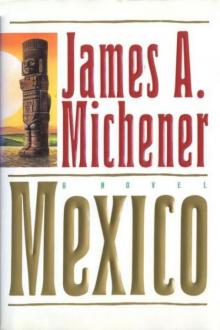 Mexico
Mexico The World Is My Home: A Memoir
The World Is My Home: A Memoir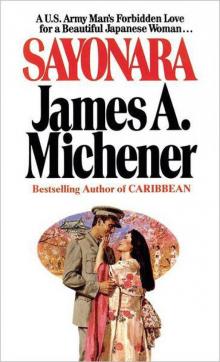 Sayonara
Sayonara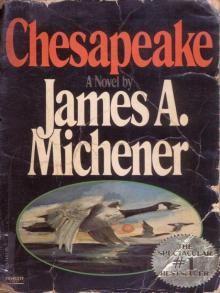 Chesapeake
Chesapeake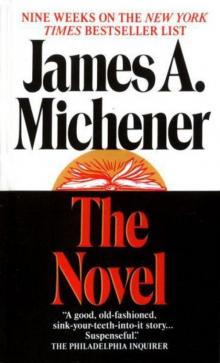 The Novel
The Novel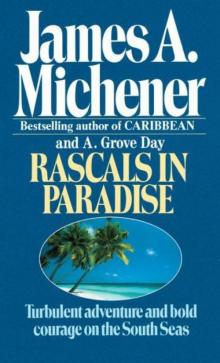 Rascals in Paradise
Rascals in Paradise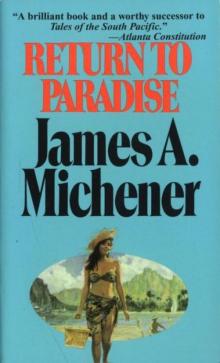 Return to Paradise
Return to Paradise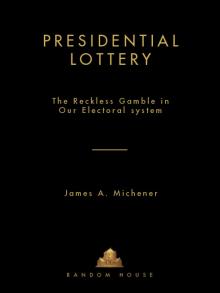 Presidential Lottery: The Reckless Gamble in Our Electoral System
Presidential Lottery: The Reckless Gamble in Our Electoral System The Source
The Source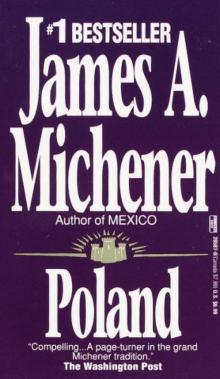 Poland
Poland Space
Space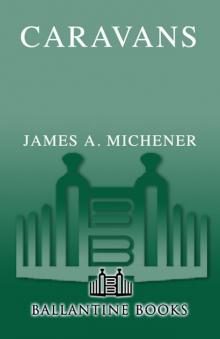 Caravans
Caravans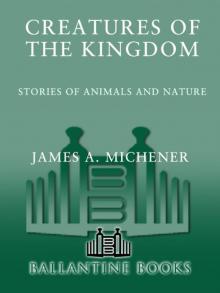 Creatures of the Kingdom: Stories of Animals and Nature
Creatures of the Kingdom: Stories of Animals and Nature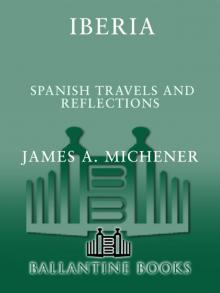 Iberia
Iberia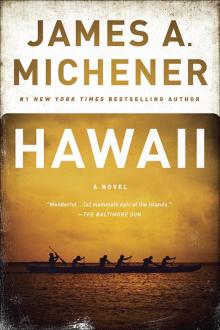 Hawaii
Hawaii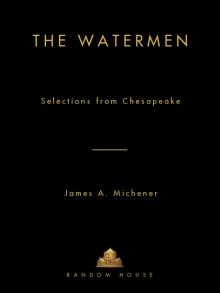 The Watermen: Selections From Chesapeake
The Watermen: Selections From Chesapeake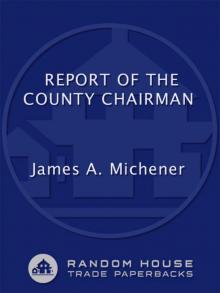 Report of the County Chairman
Report of the County Chairman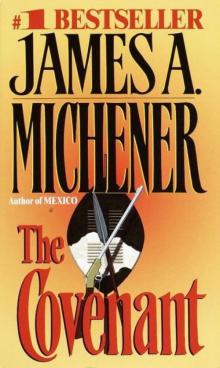 The Covenant
The Covenant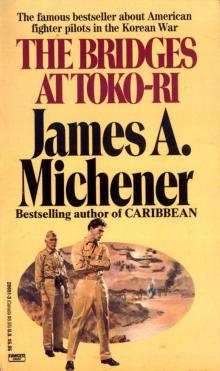 The Bridges at Toko-ri
The Bridges at Toko-ri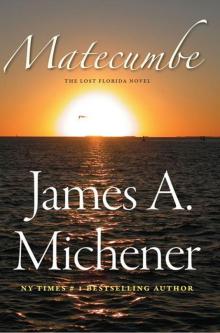 Matecumbe
Matecumbe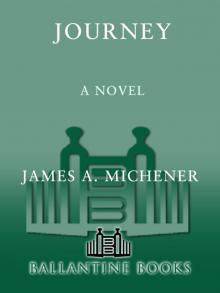 Journey: A Novel
Journey: A Novel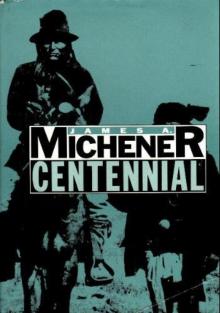 Centennial
Centennial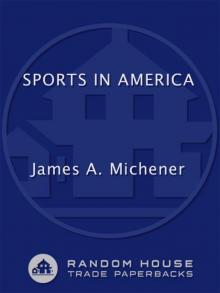 Sports in America
Sports in America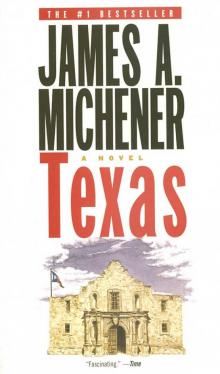 Texas
Texas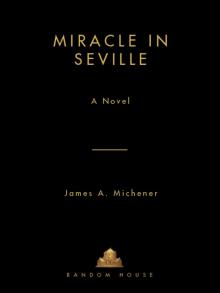 Miracle in Seville
Miracle in Seville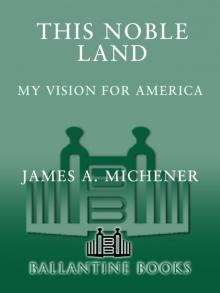 This Noble Land: My Vision for America
This Noble Land: My Vision for America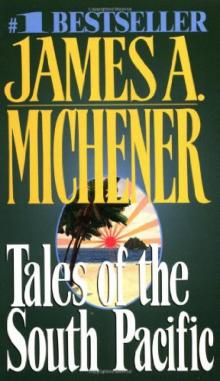 Tales of the South Pacific
Tales of the South Pacific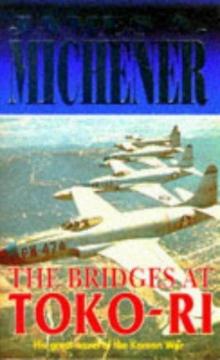 Bridges at Toko-Ri
Bridges at Toko-Ri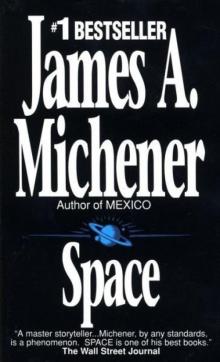 Space: A Novel
Space: A Novel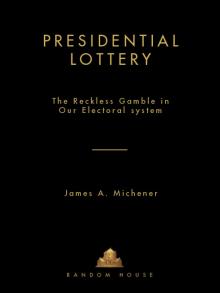 Presidential Lottery
Presidential Lottery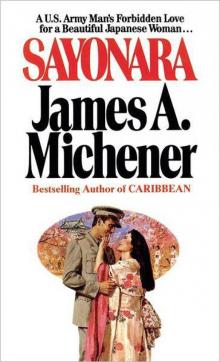 Sayonara: A Novel
Sayonara: A Novel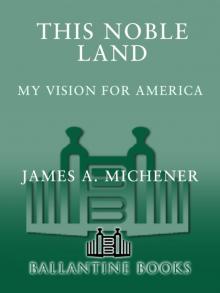 This Noble Land
This Noble Land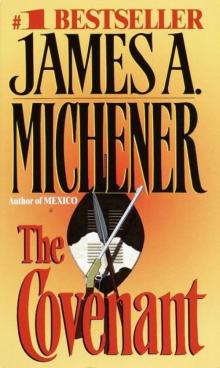 The Covenant: A Novel
The Covenant: A Novel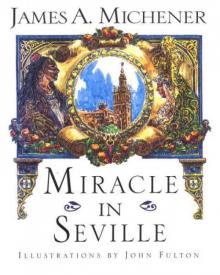 Miracle in Seville: A Novel
Miracle in Seville: A Novel The Bridge at Andau
The Bridge at Andau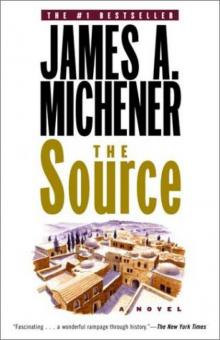 Source
Source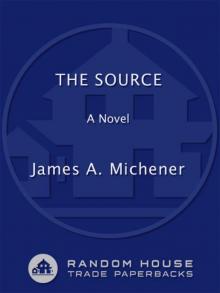 The Source: A Novel
The Source: A Novel Journey
Journey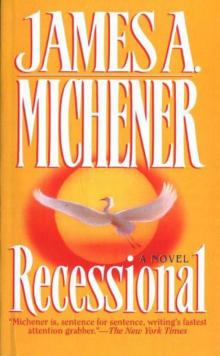 Recessional: A Novel
Recessional: A Novel Legacy: A Novel
Legacy: A Novel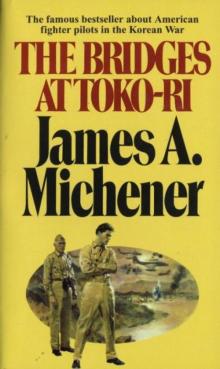 The Bridges at Toko-Ri: A Novel
The Bridges at Toko-Ri: A Novel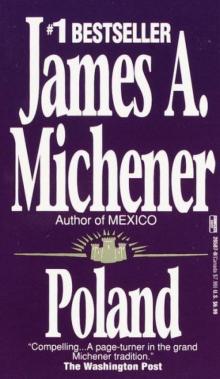 Poland: A Novel
Poland: A Novel